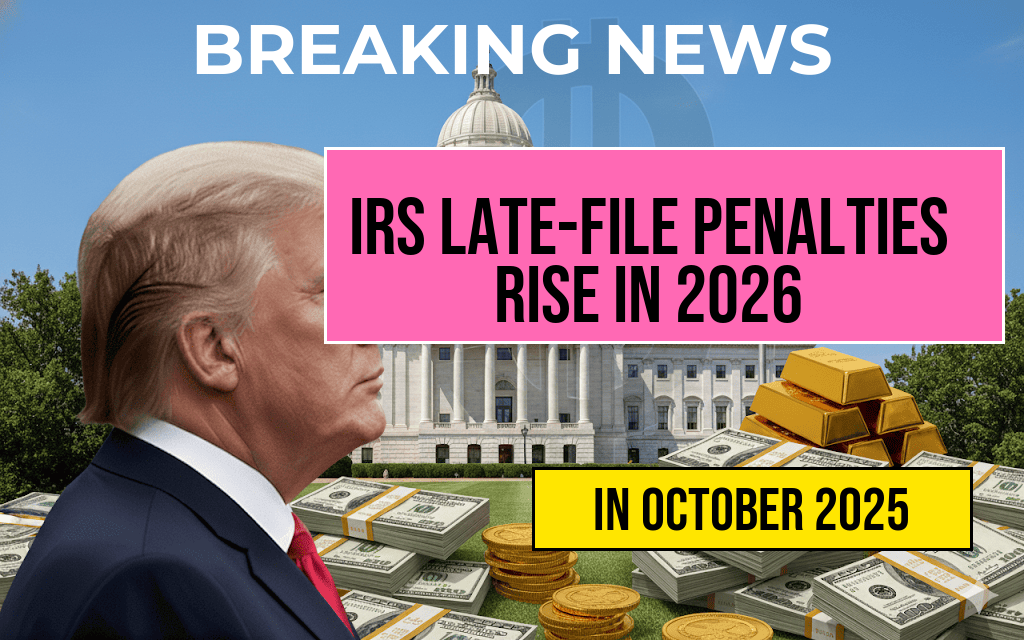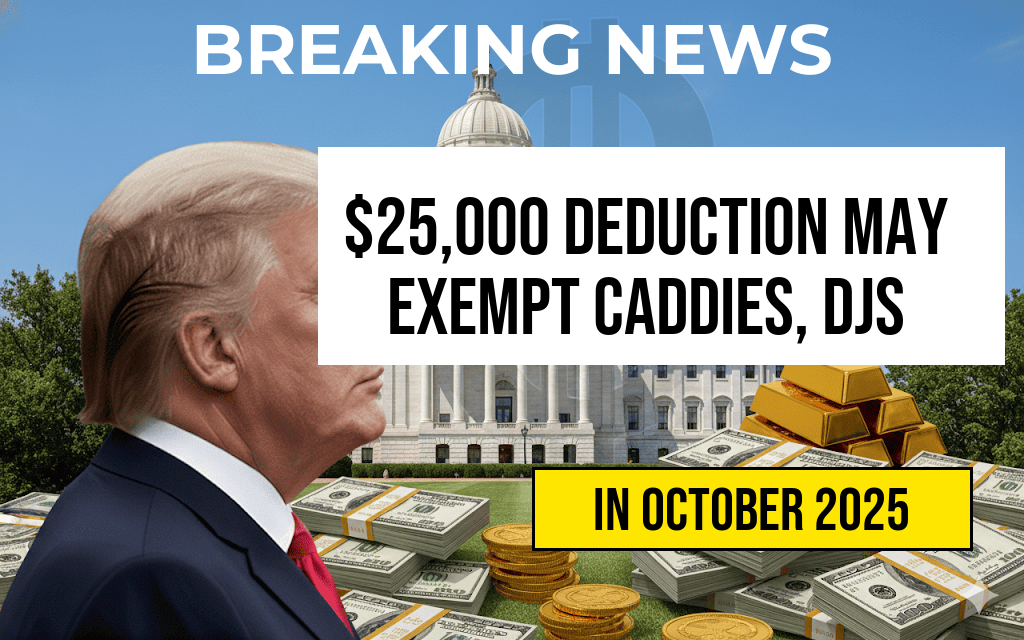Taxpayers across the United States are facing a significant shift in IRS late-filing penalties, with increases set to take effect in 2026. As the IRS aims to encourage timely tax returns, the penalty for failing to file on time will rise from the current rate of $330 to $485 or more, depending on the tax year and the number of months a return is overdue. This change could have a substantial financial impact on individuals and businesses alike, particularly those who may already be struggling with the complexities of tax compliance. Understanding these upcoming changes is crucial for taxpayers to avoid unexpected costs and to plan effectively for their financial obligations.
Understanding the New Penalty Structure
The IRS has announced that the late-filing penalty will see a gradual increase starting in 2026. This is part of a broader initiative to modernize the tax system and ensure compliance. The penalties are structured as follows:
| Filing Delay | Current Penalty | 2026 Penalty |
|---|---|---|
| 1 Month Late | $330 | $485 |
| 2 Months Late | $660 | $970 |
| 3 Months Late | $990 | $1,455 |
| 4 Months or More Late | $1,320 | $1,940 |
Reasons for the Increase
The IRS cites several reasons for this increase in penalties. Chief among them is the need to adapt to inflation and the rising costs associated with tax administration. The agency aims to deter late filings, which can create backlogs and complicate the tax system for everyone. Furthermore, the IRS believes that by increasing these penalties, they are promoting a culture of compliance among taxpayers, ultimately benefiting the entire tax system.
Consequences of Late Filing
Failing to file a tax return on time can lead to more than just financial penalties. Taxpayers may also face:
- Interest Accrual: Interest on unpaid taxes will continue to accumulate, further increasing the total amount owed.
- Potential Audits: Late filings may trigger audits or additional scrutiny from the IRS, adding stress and complexity to the tax process.
- Loss of Refunds: Taxpayers expecting a refund may lose their right to claim it if they do not file their return within three years of the due date.
Strategies to Avoid Late Filing
To mitigate the risk of incurring hefty penalties, taxpayers can adopt several proactive strategies:
- Organize Financial Records: Keeping track of financial documents throughout the year can streamline the filing process.
- Utilize Tax Software: Tax preparation software can simplify the filing process and help identify potential deductions.
- File for Extensions: If unable to meet the filing deadline, taxpayers can apply for an extension to avoid penalties, although any taxes owed must still be paid on time.
Resources for Taxpayers
Taxpayers looking for assistance can find valuable information and resources through various reputable organizations. The IRS provides comprehensive guidelines and updates on its official website. For more detailed insights into tax penalties, consider exploring:
Final Thoughts
The impending increase in IRS late-file penalties signifies a critical moment for taxpayers to reassess their filing habits. With fines set to rise significantly in 2026, taking proactive steps now can help avoid costly mistakes. By understanding the new penalty structure and employing effective strategies, individuals and businesses can navigate the complexities of tax compliance more effectively.
Frequently Asked Questions
What are the new IRS late-file penalties set to increase in 2026?
The IRS is set to increase late-file penalties in 2026, which could significantly impact taxpayers who fail to file their returns on time. The current penalty is set at $330, but this amount will rise to $485 for late filings.
How can I avoid late-file penalties from the IRS?
To avoid incurring a late-file penalty, ensure that you file your tax return by the due date. If you cannot meet the deadline, consider filing for an extension or consult with a tax professional for guidance.
What should I do if I missed the filing deadline?
If you’ve missed the filing deadline, it is important to file your return as soon as possible to minimize any potential penalties. The IRS may assess a penalty based on how late the return is filed, so taking action quickly can help reduce costs.
Are there any exceptions to the late-file penalty?
Yes, there are certain circumstances where the IRS may waive late-file penalties, such as if you can demonstrate reasonable cause for your late filing. It is advisable to provide documentation to support your claim when requesting a penalty abatement.
When will the increased penalties take effect?
The increased penalties for late filing will take effect starting in 2026. Taxpayers should be aware of this change to plan accordingly and avoid higher costs associated with late filings.






